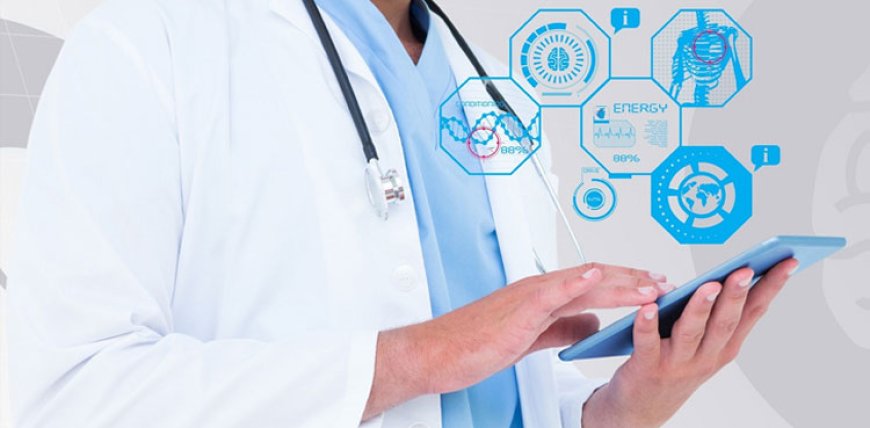Breaking Traditions: The Surge in Students Choosing Medical Technology in Pakistan’s Health Sector

1.
In the realm of career choices, the landscape is evolving at a rapid pace, and nowhere is this more evident than in the healthcare sector. While traditional paths like MBBS (Bachelor of Medicine, Bachelor of Surgery) and BDS (Bachelor of Dental Surgery) have long been the gold standard, a new contender is rising to prominence: medical technology.
There is a growing interest among students nationwide in the topic of medical technology, which lies at the nexus of technology and healthcare. Medical technology is redefining career objectives and changing attitudes in the healthcare industry with its groundbreaking developments and transformative potential.
The appeal of medical technology is its capacity to leverage state-of-the-art discoveries to enhance patient outcomes, optimize healthcare procedures, and develop new approaches to long-standing problems. Medical technology is at the forefront of fostering innovation and advancement in the delivery of healthcare, from groundbreaking discoveries in diagnosis to cutting-edge therapeutic approaches.
The surge in students’ interest in medical technology is palpable, fueled by a multitude of factors reflecting the shifting landscape of healthcare and the integration of technology into the industry.
Today’s learners are increasingly cognizant of global health challenges and the pivotal role technology plays in addressing them. Medical technology offers avenues to contribute to global health solutions, be it through the development of diagnostic instruments for infectious diseases or the deployment of telemedicine in underserved regions. Consequently, there is a growing demand for healthcare professionals who can bridge the gap between traditional healthcare practices and modern solutions.
What sets medical technology apart is its fusion of scientific rigor with technological acumen. Students embarking on this path are not only equipped with a deep understanding of medical principles but also possess the technical prowess to leverage state-of-the-art tools and techniques to address complex healthcare challenges.
The increasing fascination with medical technology can be ascribed to multiple aspects that highlight the evolving nature of Pakistan’s healthcare environment. First and foremost, the changing landscape of healthcare requires experts who can navigate the complexity of contemporary healthcare delivery.
Medical technologists are in a unique position to address this demand because they combine technological know-how and medical knowledge.
Second, the appeal of medical technology is its capacity to bring about real, noticeable change on a worldwide level. In a world where infectious diseases and chronic illnesses are major health concerns, medical technology provides a means for students to make a meaningful contribution to solving these issues, both domestically and internationally.
Furthermore, the usefulness of medical technology cannot be emphasized. Medical technology courses can provide a quicker route to employment than standard medical degrees, which require extensive academic curricula. Because the program is shorter, students can start their careers sooner, which will accelerate their professional development and maximize their influence in the industry.
The evolving healthcare landscape, coupled with the changing employment market dynamics, underscores the need for professionals with practical skills and specialized knowledge. Medical technology programs offer precisely that, equipping students with the expertise needed to thrive in a technology-driven healthcare environment.
A new era of creativity, adaptability, and forward-thinking thinking in Pakistan’s health sector is being heralded by the increase of students pursuing medical technology. The nation is well-positioned to take advantage of the full potential of medical technology and usher in a new era of exceptional healthcare as it embraces this transformative trajectory.
The Allied Health Professionals Council (AHPC) under the Government of Pakistan plays a pivotal role in regulating and advancing the field of medical technology. Established to oversee the practice, education, and development of allied health professionals, including medical technologists, the AHPC serves as a central authority responsible for setting standards, ensuring quality, and promoting excellence within the medical technology field.
Through regulatory oversight, standardization of education and training, professional development initiatives, advocacy efforts, and quality assurance measures, the AHPC helps to advance the practice of medical technology, enhance patient care, and contribute to the overall quality of healthcare delivery in the country.
To conclude, the emergence of medical technology signifies a radical shift from custom and a new course for the healthcare industry in Pakistan. As more students choose this route, the groundwork is being prepared for a time when technology and innovation will combine to expand the possibilities for healthcare. The promise of medical technology shines brightly as Pakistan moves closer to this future, shedding light on the way to a better, healthier tomorrow.


















































